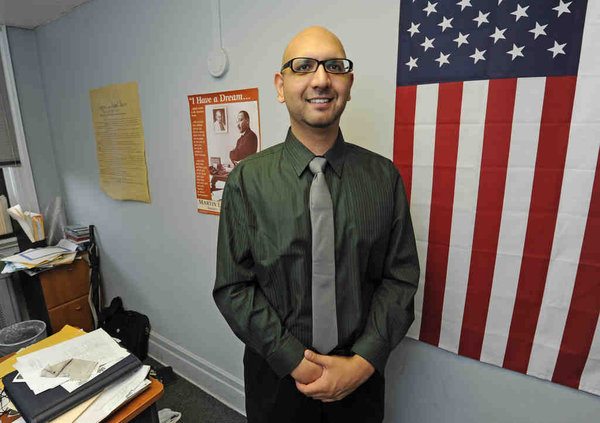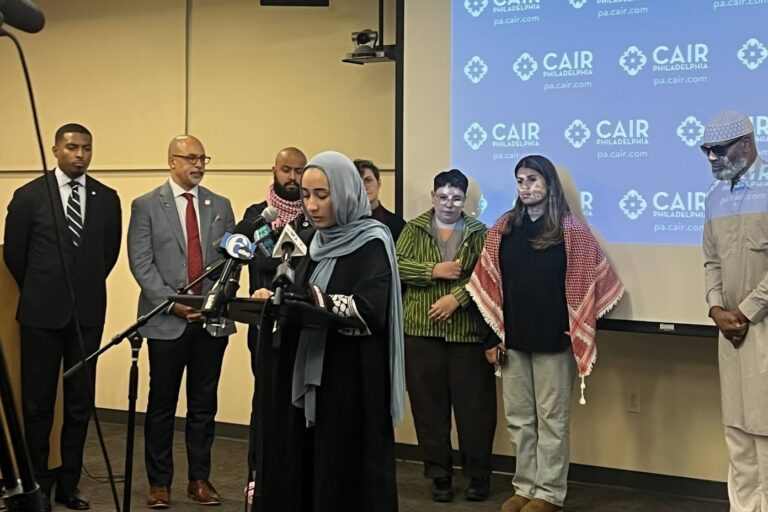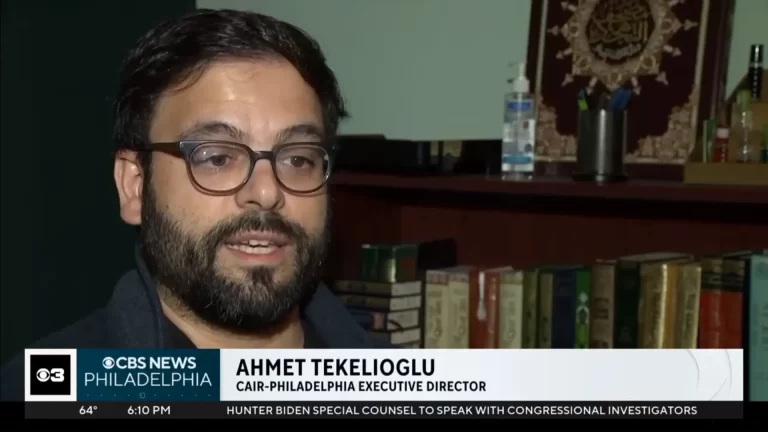![]()
by Stephan Salisbury
The Philadelphia Inquirer

Aadil Malik was 6 and living on Byberry Road in Torresdale a decade ago when planes slammed into the World Trade Center, the Pentagon, and a Pennsylvania field.
School was dismissed. His father, Babar, a native of Pakistan living in the United States since the early 1980s, picked up all the Muslim children and drove them home.
The Maliks were the only Muslim family on their block. Neighbors on either side, sensing imminent local hostility, served to buffer and protect the family.
It wasn’t enough. Two of Babar Malik’s daughters were attacked in 2002 as they walked home from school. They ran as a hail of blows and hateful names rained down on them.
It was then that the family decided to move. Now the Maliks call Coatesville home.
Their experience is not unusual in the wake of 9/11. The attacks left nearly 3,000 dead of all faiths. Less well-known are the massive migrations of American Muslims that followed.
In Brooklyn, N.Y., for instance, intense law enforcement and immigration scrutiny in the following months – many remember nightly police sweeps – led to the departure of as many as 60,000 Pakistanis, according to local activists, immigration attorneys, and the Pakistani Embassy. Some were deported, others fled to less visible, less stressful places.
In Philadelphia, the same. South Seventh Street used to boast a vibrant, if small, Pakistani presence. No more. Deportations and flight have emptied the neighborhood of South Asian Muslims. Between 100,000 and 200,000 Muslims reside in the Philadelphia area, more than half of them African American.
While the Maliks did not flee authorities, they did seek refuge from general suspicion and mistrust.
“It was very scary, very scary, for my two daughters,” Babar Malik, now 49, said. “It was then we decided to get out.”
Aadil Malik, now 16, recalls fear, isolation, and the eyes of classmates on him.
“Once they revealed that they were Muslims who attacked the World Trade Center on 9/11, I was going to elementary school, and I felt I was ostracized by everybody,” he remembered. “There was only one other Muslim kid in my lunch, Tarik, and I immediately sat next to him. We were both afraid, so we just sat together there. Everyone was staring at us.”
Ayesha Butt, 26, an adjunct professor of religion at St. Joseph’s University who lives in Philadelphia, remembers the bomb threats that came into her school on Sept. 11.
“I went to a private Islamic school in Illinois, in the suburbs west of Chicago, and, considering it was an Islamic school, it got bomb threats the first day of 9/11,” she recalled. “Our school had to close down immediately, and it was closed for that whole week. After that, somebody shot at our masjid [mosque], which was at that time the biggest masjid in Illinois.”
People shouted at Butt: “Terrorist! Osama’s wife!”
Since then, the country and Philadelphia have gone through waves of investigations and high-profile arrests and trials of Muslims accused of plotting terrorist acts. Regardless of guilt or innocence, the media attention has served to keep American Muslims and their loyalties under a cloud.
Mosque construction has spurred public controversy. Legislation barring Islamic law from courtrooms has been introduced in several states, though not in Pennsylvania. Political campaigns have highlighted anti-Muslim issues. Islamophobia has entered the lexicon.
Federal authorities have consistently said that they are not targeting particular groups because of their ethnicity. Few in the Muslim community believe that for a moment.
Members of the Ansaarullah Islamic Society in Bridesburg have described informants working for multiple federal law enforcement and immigration agencies.
“We do get calls, ‘Hey, I’ve been asked to be an informant – I’ve been asked to record the Friday sermons of my imam and pass them along to the FBI,’ ” said Butt’s husband, Moein Khawaja, 28, executive director of the Council on American-Islamic Relations Philadelphia, a civil-rights advocacy organization.
“A lot of these people are immigrants,” he continued. “They’ll say, ‘Look, I’m a student, I’m an immigrant, I just want to get by and get my work done, and the FBI says this is what will happen to me if I don’t do it.’
“A lot of people are being coerced, and to be frank, I’m pretty certain every mosque is being watched. There’s blanket surveillance.”
Whether or not that’s true, the perception is what matters. Babar Malik said that recently a stranger came to his mosque in Coatesville asking to spend the night, a not-unusual occurrence in the Islamic community. A mosque is viewed as a home for those in need. But in this case, congregants were afraid.
“The aura of suspicion and surveillance has chilled the community into being very suspicious of visitors,” said Khawaja. “I know there are a couple of mosques here that are very cautious when somebody says they want to convert … because a lot of these [terrorist] informant cases have been people posing as converts when they really aren’t.”
For some in the Muslim community, the scrutiny and hostility have led to civic withdrawal. But Aadil Malik has had a different response.
He described himself as “a really quiet kid,” but entering the ninth grade at Collegium Charter School in Exton, he realized that being quiet perpetuated a painful status quo.
Early on at Collegium, an assignment called for writing a monologue on bullying from “the perspective of the one being bullied.” Malik swallowed hard and jumped in.
“I started writing this speech that Islam is a victim of verbal bullying,” he said, “and then I was really nervous. I read it so many times to my dad, to my mom, practiced. I knew I had to do this.”
There had been too many ignorant, if not overtly hostile, comments about girls wearing hijabs, or head scarves; too many aggressive comments about riding camels.
“So I went to school and I presented it, and I remember seeing everybody’s faces, like, shocked, ‘Are you serious? Wow! We didn’t even know that!’ ” he remembered. “So I finally learned to express my opinion, and I’m positive they realized that just because this small group of terrorists who attacked on 9/11 were Muslim doesn’t mean all terrorists are Muslims or all Muslims are terrorists.”
Malik, by opening himself up, found that his schoolmates were willing to listen. At the end of that year, he was elected student council president. He was reelected this year.
“If somebody said, ‘Oh, you ride a camel,’ stuff like that, I know a couple other Muslims that used to go to my school who would say, ‘Oh, yeah, I do,’ like, continue with the joke because they just wanted to fit in,” Malik recalled. “And they said, like, ‘Yeah, my uncle is Osama bin Laden,’ and that kind of stuff. It just added fire to the fire that was already created.”
He’s started a blog, truthfromateen.com, and has begun speaking out about Islamophobia and what it means to be a Muslim American.
“What really sparked me to take action was the fact that I was being criticized as a Muslim,” Malik said. “I feel like we have to be less biased in the way we teach. Some of our teachers are really opinionated. There has to be a watch on that. It’s not just with Muslim history, it’s with African American history. . . . There needs to be reform. There needs to be something. We need to change.”





